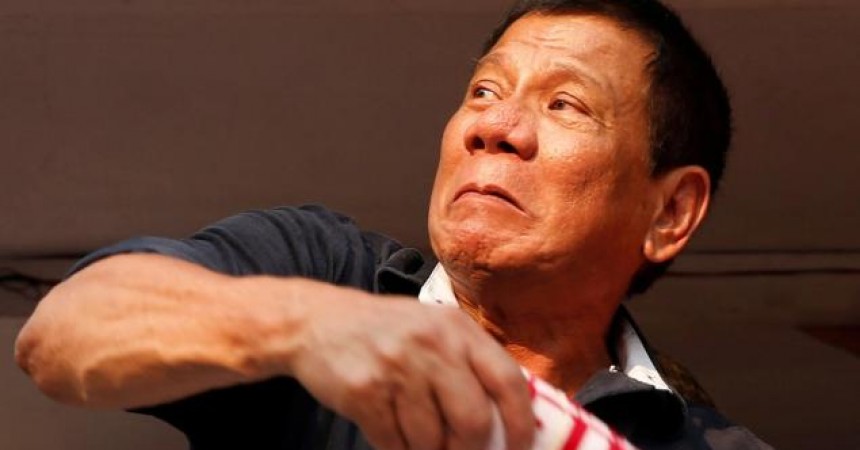
A call for sympathy
The Philippines is under international scrutiny due to President Duterte’s violent and illegal anti-drug policies. Since becoming President on 30 May 2016, Duterte has encouraged the extrajudicial killing of drug offenders from both police departments and vigilante groups, stating in his inaugural speech at Davao City to “[d]o it yourselves if you have guns, you have my support.” The numbers alone are shocking: 1,466 killed during police operations, 1490 killed from vigilante action, 16,000 suspects formally arrested, and over 700,000 drug offenders “voluntarily” handed in. And the numbers are showing no sign of stopping.
The international community responded in its usual fashion by naming and shaming President Duterte’s actions. In mid-August, following a number of calls to action over the summer by prominent non-government organizations (NGOs) like Human Rights Watch, the Office of the United Nations High Commissioner on Human Rights (OHCHR) urged the Philippines to stop these unlawful killings. International leaders have also voiced their concerns over President Duterte’s clear disregard for human rights, including President Obama.
What’s incredible about Duterte’s presidency is that, despite the local tragedies and despite the international pressure, he is still supported by a vast majority of Filipinos. President Duterte beat his closest rival by over 6.6 million votes during the presidential election, and Pulse Asia recently published a survey that shows 91% of Filipinos have a high degree of trust in him.
The lack of outrage from the national community may be less confusing given a more expansive view of the domestic landscape. For decades, the Philippines has had the highest usage rate of methamphetamines and other illegal substance in East Asia. The Philippines’ Dangerous Drug Board claims over 1.8 million Filipinos use illegal drugs, while President Duterte and the Philippine Drug Enforcement Agency claim as many as 3 million are drug users. The country has very porous borders and many hideouts for smugglers due to its geographic network of archipelagos and islands, making it difficult to combat drug trafficking. Consequently, the drug trade has been a persistent and powerful presence within the Philippines’ local communities. Couple this looming presence with poor anti-drug policies from previous presidents and a widespread perception of a weak judiciary, and a more understandable picture begins to reveal itself.
But even these are merely textbook descriptions of how deeply personal issues can affect political outcomes; numbers and figures can only do so much. I can only imagine the frustration Filipino families have been feeling for generations as members of their community succumb cycles of addiction, the anger over the political corruption and ineptitude that allows these crimes to persist, the fear that this nightmare will continue. For many, it’s these emotive and individual responses to the country’s drug problems that drive them to support the strongman persona of President Duterte.
The controversy surrounding President Duterte’s actions are reflective of my own issues with some of the international human rights discourse. These actors—while ultimately correct in condemning these human rights violations—often fail to properly understand and account for what’s actually happening on the ground. From a more critical framework, they seem to be applying a universal norm for human rights—in particular, one that’s deeply grounded in the social, political, and moral context of developed countries—without the nuance necessary to effectively make change. Many calls for justice in the Philippines only go as far as stopping extrajudicial killings and holding President Duterte accountable for his support. Few suggest tackling, for example, systemic issues of poverty and crime, which form the root causes of this human rights tragedy. President Duterte himself noted this gap when he responded to the UN’s condemnation: “When were you here last time? Nothing. Never. Except to criticize.”
Of course I want the killings to stop as soon as possible. Of course I want to eliminate the climate of fear and paranoia destroying entire communities. And of course I want President Duterte to be held accountable for his policies. However, what most human rights actors are currently doing is not working. If anything, the traditional tactic of naming and shaming seems to have only strengthened the President’s resolve and bolstered his domestic supporters. Rather than mere criticism, moving forward will require a greater level of sympathy with the Philippines’ plight and support for tackling the country’s systemic issues. Otherwise, it may only be a matter of time before the Philippines is captured by another leader like Duterte.
This article was published as part of the Osgoode chapter of Canadian Lawyers for International Human Rights (CLAIHR) media series, which aims to promote an awareness of international human rights issues.
Our website: http://claihr-osgoode.weebly.com/
Facebook: https://www.facebook.com/claihrosgoode
